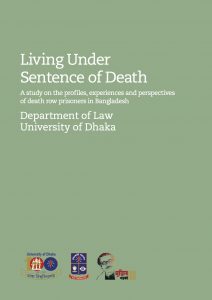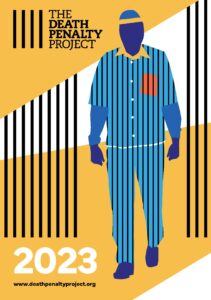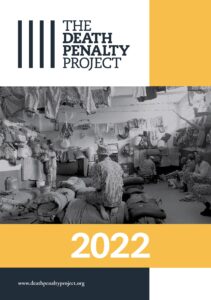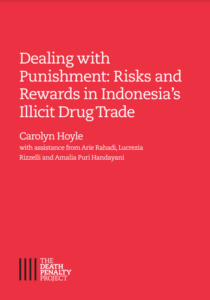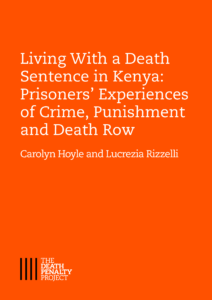Living Under Sentence of Death
- Reports and Studies
- 29 Mar 2022
In 2019-20, The Department of Law at the University of Dhaka, in collaboration with the Bangladesh Legal Aid and Services Trust (BLAST) and The Death Penalty Project, conducted a study to investigate socio-economic characteristics and experiences of death row prisoners in Bangladesh.
Bangladesh continues to retain and implement the death penalty, with several executions taking place each year. Excluding laws relating to the defence forces and international crimes, there are currently 33 crimes punishable by death. 25 of these offences are non-lethal and arguably do not meet the threshold of the ‘most serious crimes’ under international law.
Inspired by similar studies in other countries, a pilot study was commissioned to examine the demographics and experiences of those sentenced to death. Consistent with those studies around the world, our findings evidence that the death penalty in Bangladesh is disproportionately used against the most vulnerable and marginalised sections of society.
- 72% of prisoners were classified as economically vulnerable
- 53% of prisoners were in low-paid work or unemployed
- 87% of prisoners had no qualifications beyond secondary school level
- 15% of prisoners had no formal education.
The study also raised serious concerns around the treatment of prisoners, the length of time prisoners spent in prison under the sentence of death and the integrity of criminal investigations and trial.
- 33% of prisoners’ families alleged their relative had been tortured in police custody, 5% suspected this and 15% refused to comment
- 60% of respondents were not satisfied with the trial process, with some claiming that the courts had failed to properly appreciate the evidence
- On average it took over 10 years for death row cases to be disposed by the HCD (where sentences are confirmed). Prolonged time spent in isolation on death row, has been declared inhumane and degrading in many countries.
The sample consisted of 39 individuals on death row, evidence from their case files and face-to-face interviews with their families were conducted under rigorous ethical guidelines to reveal their profiles and experiences. Despite its small size, the sample is indicative of the general prison population allowing us to draw conclusions on possible trends.

